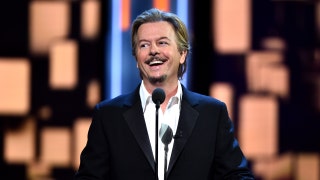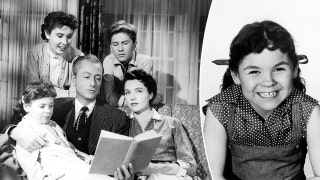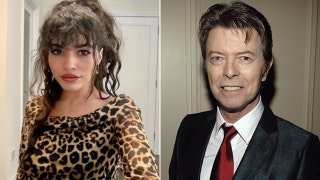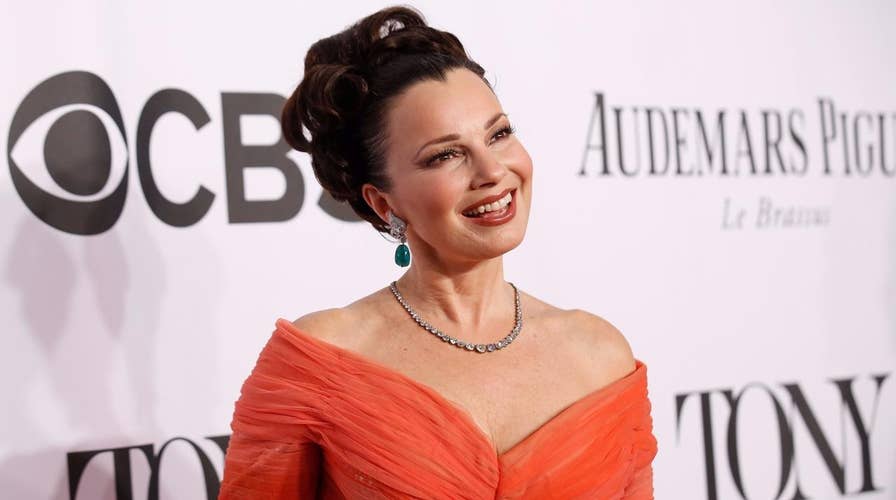Fran Drescher opens up about battle with uterine cancer
Fox411: 'The Nanny' actress hopes to inspire people to get involved in their own personal health after being misdiagnosed and treated for another condition she didn't have
While Fran Drescher was wrapping up the final season of her widely successful sitcom “The Nanny” in 1999, she was secretly trying to find out what was wrong with her.
It wouldn’t be until 2000 when the now 59-year-old found out she had uterine cancer.
“From 1999 to 2000, I was still in search of a proper diagnosis,” Drescher told Fox News. “My marriage was over. The show was over. It was a very discombobulating and dynamic time for me with a great deal of adjustments, lessons of letting go and all of that stuff.”
Drescher described her quest to get help as a “two-year and eight-doctor odyssey” involving misdiagnoses and treatment for a peri-menopausal condition she didn’t have.
“Then I finally got diagnosed with the illness doctor number one thought I was too young for: [uterine cancer],” she revealed.
Drescher would go on to write a best-selling book in 2003 chronicling the experience, but soon realized she could be doing so much more to help prevent other women from getting misdiagnosed.
“I’ve always been that person who feels like if you’re blessed with celebrity and you don’t use it for the greater good, you’re really wasting it,” she explained. “When I went on my book tour, I realized what has happened to me has happened to many, many Americans.
"Patients need to transform into medical consumers because we put more time and research into the buying, selling, and repairing of our automobiles than we do our own bodies, which we tend to very gladly hand over to a doctor… I was lucky I was still in stage 1 because the cancer that I had was a very slow growing one. And I feel like I got famous, I got cancer, and I [now] live to talk about it.”
Drescher has been cancer free since 2000, but her role as president of the Cancer Schmancer Movement, an organization dedicated to raising awareness on the importance of early detection and prevention, is far from over. On July 17, Drescher was honored at the American Cancer Society’s California Spirit Benefit for her work over the years.
However, she’s still trying to make sense of her earlier misdiagnosis.
“That was the worst part of it,” she admitted. “I kept being place on hormonal replacement therapy… Most women that get uterine cancer are post-menopausal or obese. And since I was neither, they were quite certain it wasn’t that… I still don’t understand why everybody was so quick to dismiss that and put me on hormones. Don’t trust anybody with your life.
"Do your own research. The more you know, the better off you are. Knowledge really is power. The more you can say to doctors, ‘Well, what about this? Why can’t we rule out this?’ They say cancer is a silent killer. That’s not true. We’re just not noticing the little things, like sudden digestive problems, backache, [and] weight gain like a pound a month. These can all indicate a more serious problem.”
And Drescher’s work hasn’t stopped with just leading the Cancer Schmancer Movement. She continues to rally support for the need to help revamp women’s healthcare. In 2007, she urged lawmakers to pass Johanna’s Law, which promotes the education of gynecological cancers. It was named after Johanna Silver Gordon, who died from ovarian cancer in 2000 at age 58.
Rumors have existed over the years of the comedienne pursuing a career in politics. In 2008, Drescher told New York Magazine she was considering running for office. Then in 2014, she told Fox News becoming an elected official “is on my bucket list.” But these days, Drescher is having second thoughts.
“You know, it’s funny that you ask that because people always say that to me,” she explained, chuckling. “Friends, family, fans. I’m on the fence only because as a cancer survivor, it’s so toxic [in Washington], I don’t know whether I can have more influence as an elected official.
"But then I’m climbing down Jacob’s Ladder. Will it ultimately kill me? I’m a little bit scared because really, the hyper partisanship is very toxic. It’s really kind of palpable. I’m not really sure… [but] if consumers become more educated, everything that is systematically wrong with the world will shift if they really stop and say no to things. That’s the kind of leadership we really need.”















































